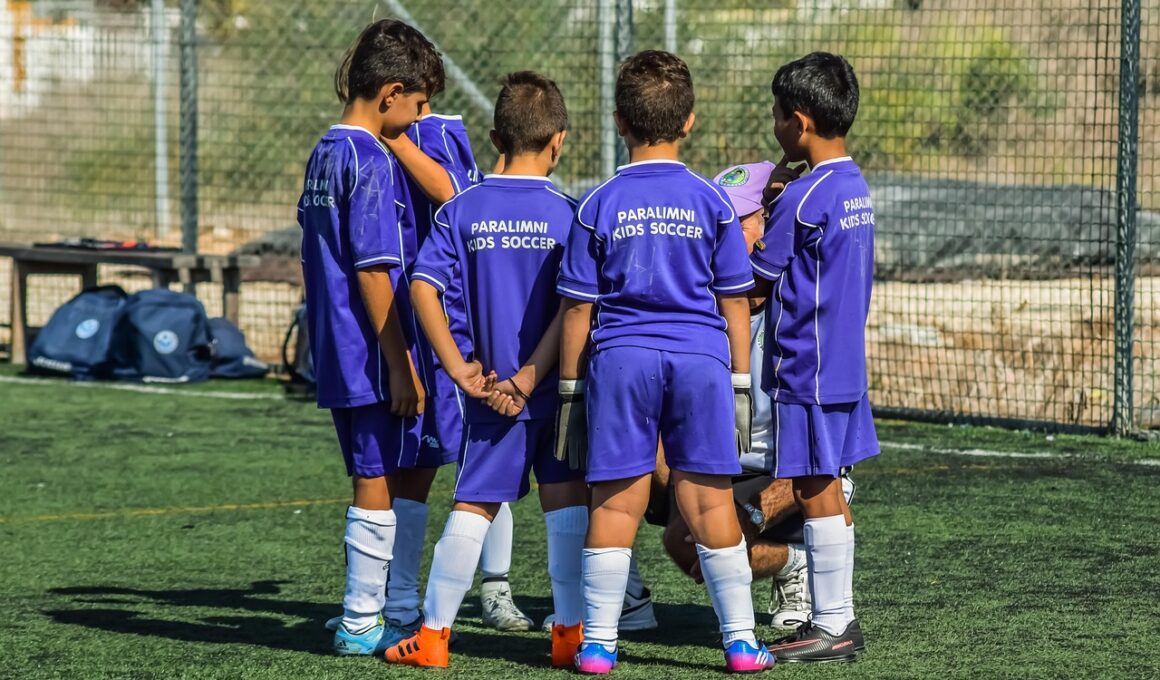Football Fitness for Kids Under 12: Fun and Effective Training Ideas
Football is more than just a game; it is an essential part of childhood that teaches teamwork and discipline. When training young players under the age of twelve, it becomes crucial to prioritize their fitness in a way that keeps them motivated and engaged. The key is to incorporate fun elements into their training routines, ensuring they enjoy their experience while developing essential skills. Varied training activities not only enhance their physical capabilities but also foster a lifelong love for the sport. The ultimate goal for coaches and parents is to create an environment that encourages kids to play and develop without the pressure of competition.
Creative Drills for Young Players
Implementing fun and engaging drills is vital in keeping young footballers excited about their training. Simple exercises such as zig-zag runs, cone dribbling, and passing games can be highly effective. These activities should focus on agility, coordination, and ball control, essential skills for any budding footballer. Challenges like mini-tournaments or relays promote team spirit while encouraging healthy competition. Coaches should also consider introducing games like Sharks and Minnows, where players have to evade being tagged, which not only develops speed and endurance but also builds strategic thinking. Incorporating varied drills ensures that sessions remain fresh and enjoyable.
Nutrition plays a pivotal role in the development of young athletes, and it’s essential to educate kids on the importance of healthy eating habits. Providing nutritious snacks during training, such as fruits, nuts, and whole grains, helps to fuel their active bodies. Hydration is equally important, as young players often overlook the need to drink water before and after exercises. Parents and coaches can guide children towards making healthier choices by explaining how proper nutrition impacts their performance on the field. Moreover, incorporating fun educational activities that teach about healthy eating can motivate children to take charge of their diets.
Another aspect of age-specific training is promoting mental resilience in young athletes. Teaching children how to cope with setbacks is vital for their overall development. Humans experience inevitable ups and downs, and guiding children to handle disappointment can foster a robust mindset. Activities like role-playing scenarios where they manage both winning and losing gracefully can be beneficial. Additionally, encouraging young players to set achievable goals will help them focus on personal improvement rather than comparison to peers. This will cultivate a positive self-image and enhance the enjoyment of the game, focusing less on pressure and more on fun.
Building Stronger Teams Through Team Bonding
Team bonding is an essential component of youth football training. Friends and teammates who develop strong social bonds are more likely to support each other, fostering a healthy and competitive spirit. Coaches can include team-building exercises that focus on communication and trust, such as blindfolded activities or group challenges. These exercises teach young athletes the importance of working together, both on and off the field, enhancing their understanding of teamwork. Incorporating fun outings or events, such as movie nights or team picnics, affords players the opportunity to connect on a more personal level, lending itself to teamwork.
Creating a positive atmosphere in training sessions can significantly impact young athletes’ performance and enjoyment of football. Coaches should focus on offering frequent positive reinforcement, encouraging children to embrace the learning process. A well-structured environment with clear expectations allows children to feel secure while stepping out of their comfort zones. When the atmosphere feels safe and welcoming, players are more likely to take risks and engage actively in drills. Even small gestures like celebrating small achievements can boost morale and confidence, ultimately enhancing their overall experience and passion for the sport.
Engaging Parents in Football Training
Parents play an integral role in a child’s sports journey, and involving them in training can yield fantastic results. Organizing events where parents participate in sessions allows them to understand better their child’s experience, enhancing their support. Creating parent-volunteer days encourages community interaction while reinforcing the idea of teamwork beyond the pitch. Providing resources that inform parents on how to motivate their kids effectively can encourage a collaborative environment. Knowing they have their families invested in their progress can boost young players’ confidence, stimulating a positive feedback loop that encourages continued participation.
To sum up, football fitness training for kids under 12 can easily blend fun with effectiveness. Prioritizing engaging drills, nutrition education, mental resilience, team bonding, and a positive training atmosphere fosters a healthy development for young athletes. Parents also have a role in creating a supportive environment that encourages kids to thrive. Coaches can guide children through this exciting journey, empowering them to reach their fullest potential. Ultimately, investing attention in age-specific training provides the foundation for future success while instilling a lifetime love for football and staying physically active.


